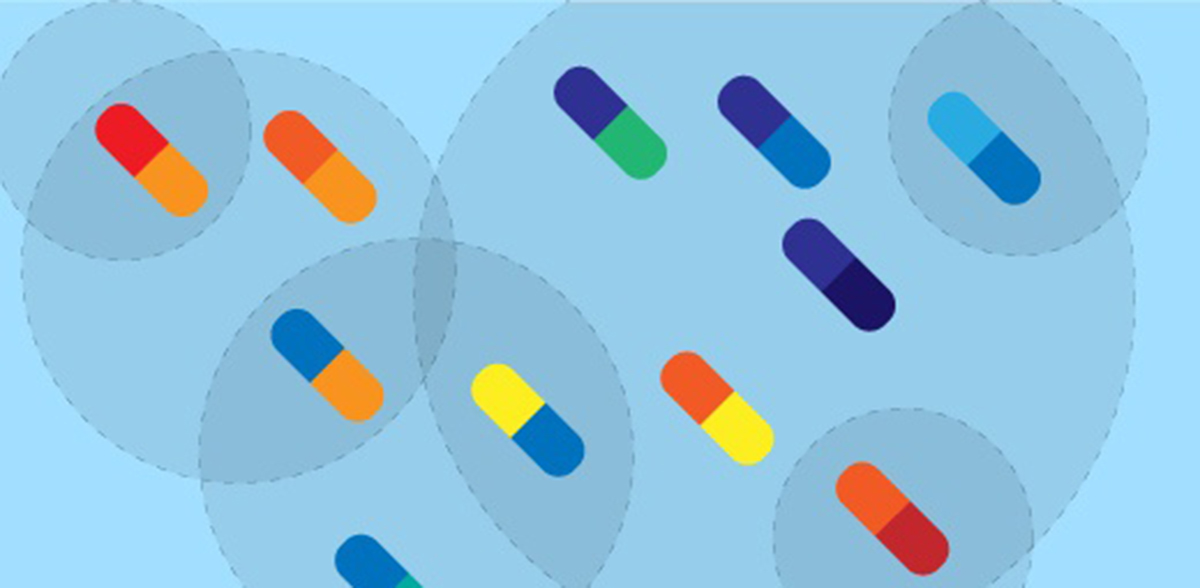Alzheimer’s disease is a condition accompanied by a progressive decline in the cognitive functions of the patient's brain along with symptoms of dementia. It commonly strikes after the age of 65 and is the fourth leading cause of death in elderly people. Although the exact cause of the disease is unknown, several factors like genetic traits, slow viruses, deficient nutrition and many environmental factors have been implicated as the reason behind the development of Alzheimer's disease.

As the etiology of the disease remains unclear, various forms of alternative therapies have also been tried to treat Alzheimer’s disease depending upon the causal factor that people attribute the disease to. According to a survey conducted by the University of North Carolina School of Medicine in 1994, as many as 55 percent of patients of Alzheimer’s disease had tried at least one form of alternative therapy, and often more than one, along with their conventional therapy to get rid of the disease or to improve the symptoms from which they suffered.
The most commonly used alternative therapies for treating Alzheimer’s disease include the use of various health foods, dietary supplements, herbal medicines, acupuncture, music therapy, aromatherapy, and massage therapy, among others. Read on to find out how effective these forms of therapies are in managing Alzheimer's disease.
Nutritional Therapy for the treatment of Alzheimer’s disease
1. Antioxidants
Many medical practitioners believe that Alzheimer’s disease is a result of deficiency or excess of certain elements in the diet. It is often thought that free radicals are the main culprits which damage the cells of the body and hasten the aging processes. And the best way to control these free radicals is the use of antioxidants. Nutrients rich in antioxidants and therefore used to treat Alzheimer’s disease include beta carotene, vitamin C and vitamin E, and selenium.
Foods rich in beta carotene include apricots, spinach, carrots, sweet potatoes, etc.
Sources of vitamin C include all citrus fruits like oranges and lemon, apart from vegetables like broccoli.
Vitamin E is abundant in vegetable oils, dry fruits and nuts. Various dietary supplements of vitamin E are also available in the market.
Selenium rich foods include fish, liver, whole grain cereals, cabbage, etc.
Coenzyme Q-10 given in a dose of 10 to 50 mg three times a day is also said to be effective in Alzheimer’s disease as it increases the oxygen availability to the brain.
2. Vitamins and folate
It has been seen that people who are suffering from Alzheimer’s disease are often deficient in vitamin B6, vitamin B12 and folate. Therefore, it is believed that supplementing these compounds in the diet will help in preventing the development of the disease, or may be helpful in managing Alzheimer's disease in current patients.
A deficiency of vitamin B12 has been found to lead to depression, memory loss, confusion and neurologic problems. Similar features are seen in case of folate deficiency. In the case of a deficiency of vitamin B6, there is a fall in the number of dopamine neurotransmitters in the brain. All these symptoms are also seen in case of Alzheimer’s disease patients, leading practitioners to postulate that Alzheimer’s disease may be a result of deficiency of vitamins B6 and B12 and folate.
3. Omega-3 fatty acids
Omega-3 fatty acids are generally used as supplements to reduce the risk of heart diseases and stroke. They are also believed to lower the risk of dementia and cognitive impairment. Docosahexaneoic acid (DHA) is the main omega-3 fatty acid present in the brain. It is present in the fatty membrane surrounding the nerve cells, especially at the synaptic junctions. Omega-3 fatty acids are said to prevent the onset and progression of dementia due to their beneficial effect on the heart and the cardiovascular system, and for their anti-inflammatory properties and their neuro-protective actions.
These can be acquired as supplements or by eating certain types of fish, as well as eggs.
4. Phosphatidylserine
It is used to prevent the development of Alzheimer’s disease. It strengthens the cell membrane of the neurons and prevents them from degenerating. It also increases the level of chemicals associated with memory.
5. Selegiline
It increases the level of catecholamines in the brain. The adrenergic stimulation by selegiline improves the cognitive deficits associated with Alzheimer’s disease and slows the progression of the disease.
Therapies Other Than Conventional Therapy For The Treatment Of Alzheimer's Disease
The Role of Herbs in the treatment of Alzheimer’s disease
Some of the most common herbs which have found a place in the treatment of Alzheimer’s disease include the following.
Gingko biloba has been found to be useful in the treatment of the early phases of Alzheimer’s disease and vascular dementia. It is believed to possess antioxidant as well as anti-inflammatory properties. Gingko biloba protects the cell membrane of the nerve cells and helps in the regulation of the functioning of various neurotransmitters.

Huperzine A is derived from the moss plant and acts just like cholinesterase inhibitors, which have been approved for the treatment of Alzheimer’s disease.
Curcumin which is derived from the ginger family has shown promising antioxidant and anti-inflammatory properties against β-amyloid aggregation. It can be beneficial in the treatment of Alzheimer’s disease because it can modulate the amyloid induced cytopathology.
Music Therapy for Alzheimer’s disease
Music therapy is said to elevate the mood of the patient with Alzheimer's disease. It reduces the restlessness and increases the level of chemicals in the brain which are associated with sleep. It acts as an anxiolytic (anti-anxiety drug) and improves the quality of life of the patient.
Role of Aromatherapy in Alzheimer’s disease
Certain oils used in the aromatherapy, especially lemon balm and lavender oil, are believed to improve cognition in people with the disease. Like music therapy, aromatherapy also helps in reducing the anxiety associated with Alzheimer's disease and has a calming effect on the patient.
Acupuncture in Alzheimer’s disease
Small studies done in the past have indicated that certain types of acupuncture and transcutaneous electrical nerve stimulation (TENS) help in improving memory and daily living skills in patients suffering from Alzheimer’s disease. This complementary treatment may be able to improve a patient's quality of life.
Massage Therapy in patients suffering from Alzheimer’s disease
Though massage therapy cannot delay the onset or the progression of Alzheimer’s disease, it does have a calming effect on the patient. Receiving a massage lowers the pulse rate and soothes the nerves of the agitated patients. Moreover, massage therapy can be used to improve the communication skills of the patients. It can act as a means of nonverbal means of communication.
Although all these methods of alternative medicine have been used in the treatment of Alzheimer’s disease from time to time, yet it is important to know that hardly any of these methods is backed by scientific studies. So it is difficult to comment on their efficacy.
These alternative forms of therapies should only be used as an adjunct to the conventional therapy and not as a replacement.
Moreover, certain chemicals used in alternative therapy for Alzheimer’s disease may chemically react with the conventional medicines. Therefore, it is imperative to take the permission of your physician before starting any new form of alternative therapy.
- “Alzheimer's disease”, by University of Maryland Medical Center, reviewed last on December 6, 2010, accessed on November 21, 2012.
- “The Efficacy of Ginkgo biloba on Cognitive Function in Alzheimer Disease”, by Barry S. Oken, et al, published in 1998 in the journal Archives of Neurology, accessed on November 21, 2012.
- “A Controlled Trial of Selegiline, Alpha-Tocopherol, or Both as Treatment for Alzheimer's Disease”, by Mary Sano, et al, Published in the April 24, 1997 issue of the New England Journal of Medicine, accessed on November 21, 2012.
- 7
- Photo courtesy of alzheimerhelp on Flickr: www.flickr.com/photos/alzheimerhelp/6921658471
- Photo courtesy of opensourceway on Flickr: www.flickr.com/photos/opensourceway/4750075260

